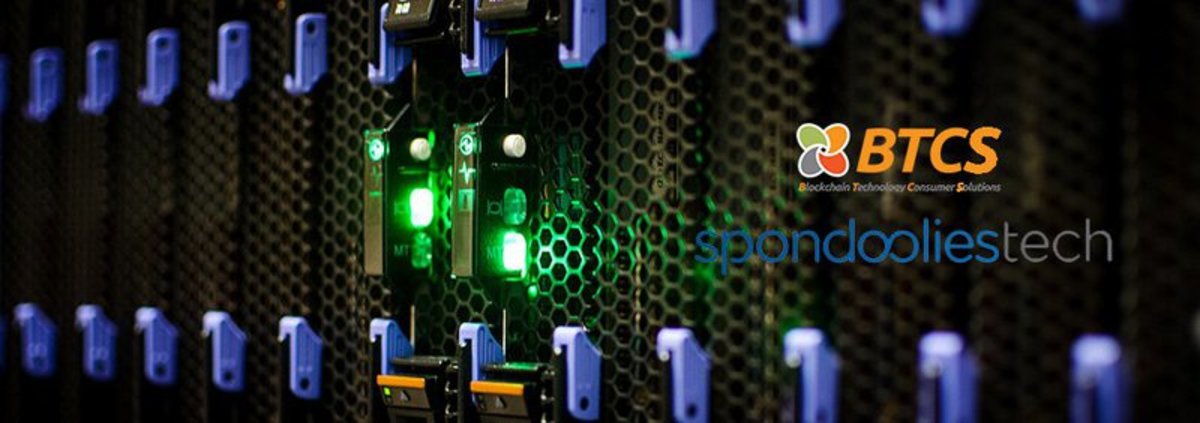
In an attempt to create one of the world’s first publicly traded bitcoin transaction verification companies, Bitcoin Shop, Inc. (BTCS) and Spondoolies-Tech, Ltd. have announced that they are in the process of merging.
By merging, BTCS, which recently launched its own mining farm, would gain access to the technology of one of the top hardware providers in the ecosystem.
The deal is an all-stock deal that will result in BTCS owning 53 percent of the combined company. This is due to the recent $1.5 million investment in Spondoolies that took place in May, which was a first step in completing the merger. This initial investment by BTCS bought it 6.6 percent equity interest in Spondoolies based on a pre-money valuation of $21.2 million.
When the merger is complete, Charles Allen, the CEO of BTCS, will act as the CEO and chairman of the merged company. Guy Corem, Spondoolies CEO and co-founder, will serve as a board member and executive officer. Yuval Rozen will be BTCS’s CFO.
Combined BTCS Moving Forward
“With the completion of BTCS’s recent investment in Spondoolies, we will begin turn our attention to moving the merger process forward,” Charles Allen said in an interview with Bitcoin Magazine.
And the future of BTCS and Spondoolies post-merger proves to disrupt the mining world.
“The core focus post-merger will be to design, manufacture and deploy servers in BTCS’s data center and expand to other low-cost data centers operated by the company,” Allen explained. “We are still discussing the possibility of selling equipment to certain customers. However, the decision will be based on what is in the best interest of our shareholders.”
Spondoolies launched just a year ago, but it took the mining world by shock with its high-quality chips. The implication would be that BTCS, a bitcoin miner, would also be producing chips to give itself a competitive advantage over other miners rather than being a supplier to other miners.
“During our first year of operation, Spondoolies successfully launched five different hardware products which are widely recognized as the best of their respective categories,” said Guy Corem, CEO of Spondoolies, in a statement. And the numbers support his statements. According to numbers released by Spondoolies — and audited by Deloitte for the planned merger — the company had $28 million in revenue in 2014.
And according to the numbers, that growth seems to be getting even stronger despite where the price of bitcoin has been going for the past year.
“We’ve shipped out more units in December 2014 than we have in April of the same year, which is a strong indicator of our ongoing growth,” Kobi Levin, COO of Spondoolies, said in a statement.
BTCS Farm Well Above Break Even Price
Based on the numbers provided by BTCS, the company still has more room for the price to drop before it reaches its real cost for mining. According to Allen, while the company hasn’t disclosed its exact mining costs because it changes based on the network hashrate, the current hashrate has BTCS’s cost resting between $100-$200/BTC.
At present, the company has 980 TH/s of hashing power that came online toward the end of the first quarter. By merging with Spondoolies, the company looks to ramp up even more hashing power.
But some argue that all of these large operations participating in mining is not the original intent of Bitcoin. Allen addressed that issue in an earlier interview, explaining that the mistake many earlier miners made was that they didn’t takecost structure into consideration.
“A miner running a unit where electricity is expensive will have a much higher cost than a miner running an identical unit in an area with low-cost electricity. This has led to the current consolidation trend in mining into large facilities and away from private or home miners,” he said.
Future Spondoolies Chips
While the combined company doesn’t intend on focusing too much on developing products for the general population, that hasn’t stopped it from coming up with new chips to launch this summer.
“Spondoolies-Tech is hard at work developing a third-generation ASIC,” Guy Corem said in an interview with Bitcoin Magazine. “The new ASIC is aiming for a 4X improvement over the efficiency of the second-generation unit. The new ASIC will allow the merged company to secure a significant percentage of the hash rate.”
According to a statement by the company, this next-generation chip should allow for bitcoin to be mined profitably, even if the bitcoin price was to drop below $100.
Releasing this third-generation chip should definitely allow BTCS the potential to gain a large chunk of market share in the bitcoin mining space, increasing the likelihood that the merger does take place. However, if the merger does break down, BTCS will walk away with a $1 million breakup fee.










